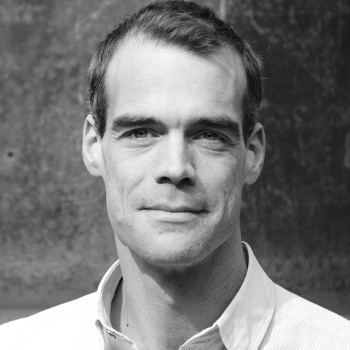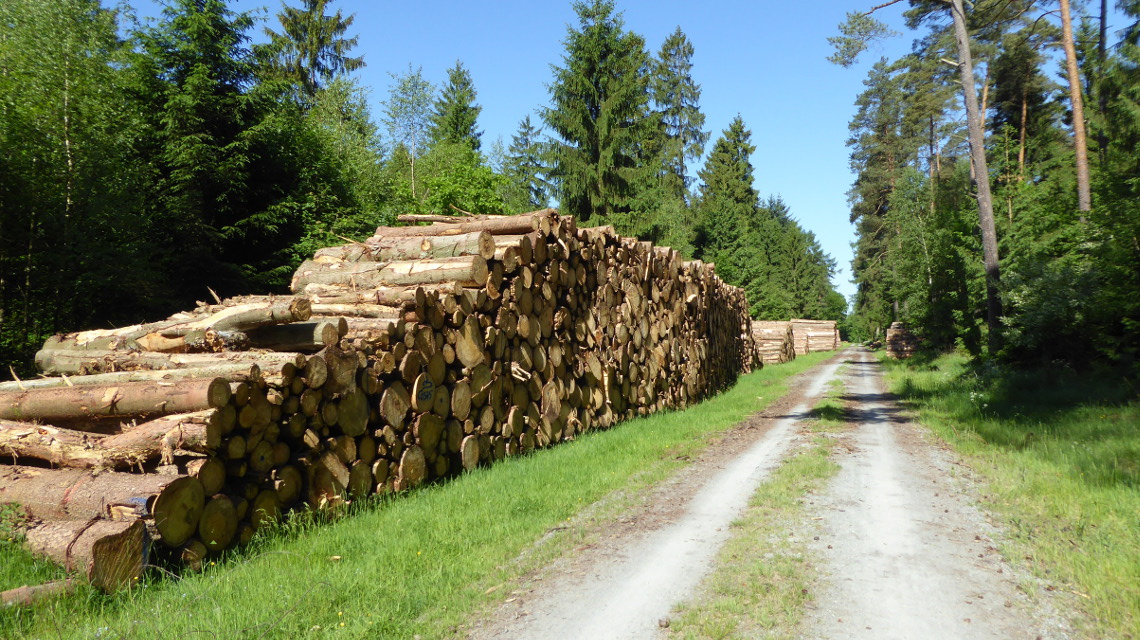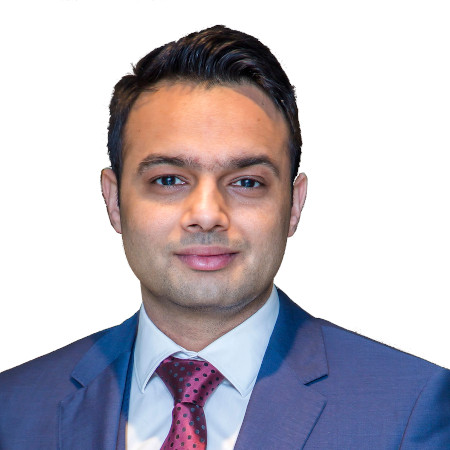Microorganisms transform exhaust fumes into bioplastic
Johannes GescherOccupation:
PhD in Microbiology
Position:
University Professor at the Institute for Applied Biosciences of the Karlsruhe Institute of Technology (KIT)

Occupation:
PhD in Microbiology
Position:
University Professor at the Institute for Applied Biosciences of the Karlsruhe Institute of Technology (KIT)

Johannes Gescher investigates the many and varied metabolic capacities of bacteria. With his work he is trying to get microbes to produce bioplastics from the carbon dioxide contained in waste gases.
Art history or biology? During his school days, Johannes Gescher couöd have chosen either one. Eventually though, the biology studies won out, and the young student moved from his birthplace of Fulda to the university town Freiburg. Once there he was captivated by the world of microorganisms almost immediately: “Even during my undergraduate degree, I saw that my future was in microbiology,” Gescher says today.
Fascinated by the microbial metabolism
After finishing his degree, Gescher stayed at the University of Freiburg to complete his doctoral thesis under the supervision of microbiologist Georg Fuchs. It is a time that he now recalls with fondness, and he is still in contact with his former mentor. During his doctoral dissertation, Gescher dealt with the topic of how microorganisms break down aromatic substances. The working group in which he was active had recently discovered new metabolic pathways in microorganisms, which he set out to examine in more detail.
This work soon took him to international spheres, including two microbiology courses in the US, where he met Alfred Spormann. After completing his doctorate, Gescher moved to Stanford University in California to work as a postdoc in Spormann’s laboratory. There, he remained faithful to his fundamental interest in the exceptional catalytic powers of microorganisms. “It just was a good fit,” says Gescher. “There was a thematic leap from aromatic degradation pathways to the ability of microorganisms to function as catalysts. Nevertheless, the focus remained on the intriguing metabolic pathways and the diverse potential of microorganisms.”
Homecoming with an elite scholarship
After two years in the US, Gescher returned to the University of Freiburg in 2007 as a junior research group leader. The move was funded by a scholarship from the elite postdoctoral programme of the Baden-Württemberg Foundation. “It really is a fantastic funding opportunity,” says Gescher. “The scholarship enables young scientists who are returning from abroad to employ a doctoral student and, at the same time, to receive ongoing support in the form of advanced training.” Gescher eventually became a Substitute Professor of Microbiology at the University of Freiburg before moving to the Karlsruhe Institute of Technology (KIT) in 2011 as Professor of Applied Biology at the Institute for Applied Biosciences (IAB).
“The distinguishing feature of my research group at KIT is that we aim to gain a system-biological understanding of our organisms before altering them on a molecular level for use in the production of specific substances,” explains Gescher.
From exhaust fumes to bioplastics
Probably the two most extensively and publicly funded research projects in which Gescher is involved are ‘BioElectroPlast’ and ‘ZeroCarb FP’. The ZeroCarb FP project is an industrially led strategic alliance in which Gescher, as an academic research partner, is working in close cooperation with the industrial partners Südzucker AG and BRAIN AG. The overarching objective: to convert carbon dioxide from flue gas streams into valuable chemical compounds. This transformation is carried out, among others, by the biocatalysts developed by Gescher and his team.
The BioElectroPlast project, which is funded by the German Federal Ministry of Research and Education (BMBF) and is headed by Gescher, is working towards the development of a resource-conserving process for the production of bioplastics. In parallel the project is also outlining a path towards the incorporation of carbon dioxide as an easily available raw material into the value chain.
Gescher: “For about six years now, we have known that some microorganisms can, in a manner of speaking, ‘eat’ electricity as a source of energy. Accordingly, and aided by microbial catalysis, microbes could convert sustainably-produced electricity into organic resources.” Gescher and his team have selected microbes that can utilise carbon dioxide from flue and exhaust gases as a substrate for their metabolism. The first substance that they intend to produce using this approach is the biopolymer polyhydroxybutyric acid. Since the autumn of 2016, the BMBF is supporting the joint project over the course of three years with a total of almost €1.6 million as part of the initiative ‘CO2Plus – Material use of CO2 for broadening the raw materials base.’
In addition to the IAB at KIT, the University of Freiburg is also taking part in the project. The EnBW – an electricity and gas provider in Baden-Württemberg – is contributing the background know-how regarding the renewable energies sector and flue gases. “Our idea for the future is to carry out CO2 scrubbing of exhaust fumes and to make the fixed CO2 available for material use through the application of special microorganisms,” says Gescher. “The organisms that were previously used in the production of bioplastics have been fed with glucose,” emphasises Gescher. “By way of contrast, we feed our microbes carbon dioxide.”
A contribution to a sustainable industry
For Gescher, there will be no way around a bio-based economy in the future, and he sees great potential in particular for the field of biocatalysts. The biotechnologist views his own field of research from two different perspectives: “On the one hand, I have always been interested in the varied substances that it is possible to catalyse using microorganisms under the most diverse conditions. On the other hand, I also see the importance of contributing to a sustainable economy.” Nevertheless, these are very early days for the BioElectroPlast project. “In about three years, we hope to build a demonstrator for the small-scale testing of CO2 fixation and conversion,” says Gescher.
Switching off with an ultramarathon
As an academic dean at KIT, Gescher not only looks after his research projects and industry partners, but also takes care of students and guides them towards a future in microbiology. Thereby, he regards the cooperation with and support from the Zwingenberg-based bioeconomy company BRAIN AG as particularly valuable. As for his students’ reading, he recommends the book ‘Intelligent Wachsen: Die grüne Revolution’ (Intelligent growth: The green revolution) by Ralf Fücks.
His advice for future students: Don’t be swayed by the latest trends when choosing their subject. “You can only be outstanding in a field in which you are interested in and maybe have a natural ability for.” Gescher also regards international experience as extremely important. In his own career, he learnt to appreciate the interdisciplinary openness at the campus in Stanford, and has tried to emulate this atmosphere at KIT.
After completing his teaching and research work, and when it is time to switch off from the extraordinary abilities of microorganisms, Gescher heads to the outdoors, where he pursues a no less extraordinary sport: “I run ultramarathons, namely 60 kilometres and upwards. I really enjoy setting off in the morning and knowing exactly what the next ten hours will look like – nothing but running.” Incidentally, this kind of activity tends to release a great deal of CO2 – maybe Gescher can one day even harvest these fumes for his microorganisms.
Author: Judith Reichel


